
Mattress buying guide
How to choose a mattress
Bed Buyers’ Guide
Mattresses may look similar, but the differences within are vast.
From the outside
The first thing you’ll notice about a mattress is its cover – known in the trade as ‘ticking’.
Manufacturers spend a lot of time choosing attractive colours and designs so their mattresses will look good – but remember that 99% of the time it will be covered up with bed clothes!
The ticking is not just there for its good looks: it also needs to be tough and tear resistant. Better quality cloths are woven or knitted in high quality viscose or cotton yarns. Cheaper cloths in polyester or polypropylene are often printed. At the budget end of the market are bonded or stitch-bond fabrics and some cheaper knits.
Ticking with special qualities is now also increasingly being used by mattress manufacturers.
Some of the options include anti-dust mite/anti allergy, anti-bacterial, anti-microbial, anti-static, breathable, water resistant, stain resistant, highly absorbent, naturally fire retardant etc.
But one of the most popular options are tickings that offer effective thermal regulation through moisture wicking and evaporation technology. There are now quite a few companies offering performance fabrics that move perspiration away from the body and through the fabric where it can evaporate quickly allowing you to feel cooler and more comfortable.
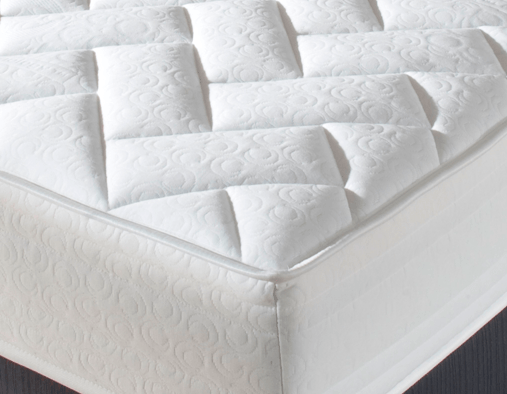
Quilting
Quilting is a decorative effect attaching the outer fabric to the surface fillings; these mattresses tend to have a smoother, flatter surface than tufted mattresses.
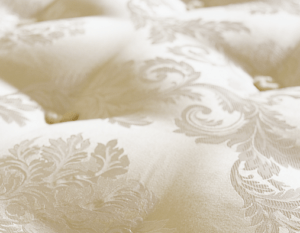
Tufting
Where tapes are passed right through the mattress at regular intervals and secured each side by tags or washers – prevents loose fillings from being dislodged.
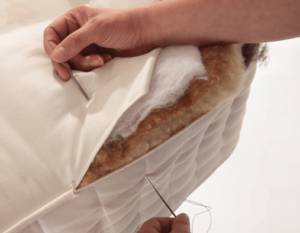
Side Stitching
The side panels of some higher quality mattresses, particularly traditionally pocket spring mattresses, are hand side stitched which helps to keep the mattress in better shape for longer.
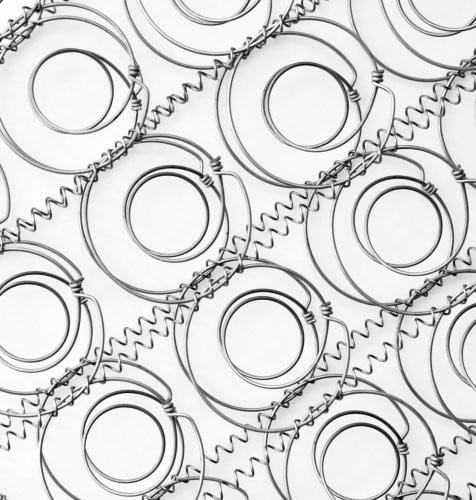
Spring interior mattresses
The majority of mattresses in the UK have spring interiors, which provide the ‘core’ support.
Changing the spring construction, thickness (gauge) of the wire, the number of coils, height of each spring and the quantity alters the tension, feel and weight distribution properties of each mattress.
Spring interior mattresses can be ‘zoned’ – across the middle to give extra support for heavier hips and shoulders; half and half, to provide different tensions on each side of the bed; or round the edge of the mattress to give it extra rigidity.
Different tensions can be achieved within the same mattress. Some units also allow the user to adjust the mattress tension themselves.
Open coil or open sprung mattress
Most widely used option, also known as the Bonnell spring.
Springs are arranged in rows and connected to one another, top and bottom, by a spiral helical wire with an outer rod strengthening the perimeter.
There are usually a minimum of 325 coils in a 5ft/150cm size – but some mattresses may have more.
Come in a choice of tensions, starting from a very firm 12.5 gauge wire.
Priced from budget to mid range.
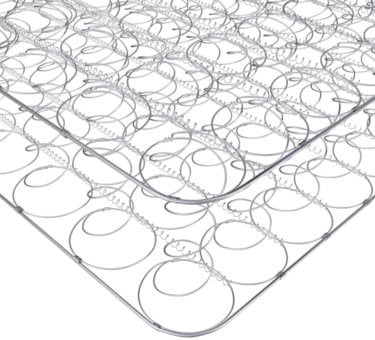
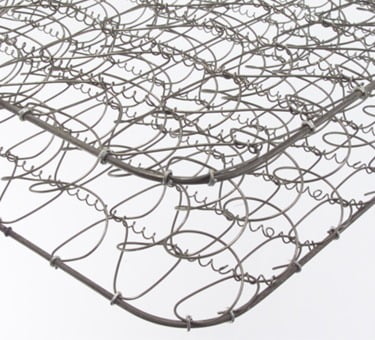
Continuous spring mattress
The gauge of wires used is softer and the size of the ‘coils’ smaller than open coil, giving a higher spring count and a more responsive feel.
Priced in the mid market.
Conforms and adjusts to body contours.
Helps eliminate roll together.
Spring counts typically vary from 600-800 up to 2,500 but can go up to 3 or even 4,000. Like other types they are made in a range of tensions.
Often more expensive and used mainly in higher quality products.
Better quality pocket springs are encased in calico pockets, hand nested in a honeycomb pattern and centre tied with linen cord.
Less expensive pocket springs are encased in fibretex or stitchbond fabrics and are lightly glued together in linear rows.
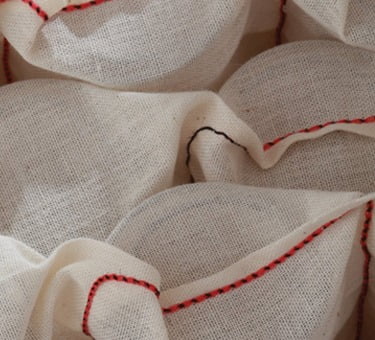
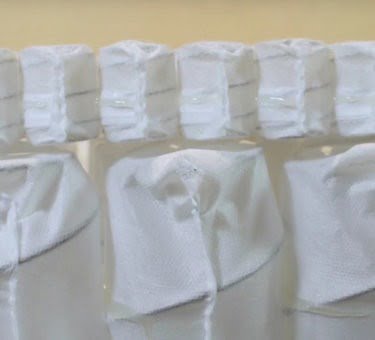
Mini spring mattress
They can also be stacked together to form a very soft, high spring count mattress core.
Spring mattress fillings
Interior sprung mattresses use a wide variety of fillings to create different properties and comfort options, as well as affecting price. Fillings are chosen for their resilience, durability, flexibility and ability to absorb body moisture. In cheaper mattresses, fillings usually come in compact pads; in better quality models, layers of loose fillings in greater volumes are often preferred.
Cotton: Often used near the surface for its soft feel and its ability to breathe, and to absorb moisture.
Polyester: A synthetic material with good recovery properties
Silk, cashmere, mohair and other fine, natural fibres: Used for additional luxury and insulation properties.
Hair: Highly resilient fibre, often described as “nature’s spring”. Available in pads or loose for high luxury.
Coir fibre pads: Made from coconut fibre are generally used next to the spring to insulate and prevent the spring being felt or penetrating. Alternatives include compressed wool or synthetic pads.
Foam: Different types of foam are used for their cushioning effect. They include latex, polyurethane and visco-elastic (memory foam). Explanations of these different types of foam can be found below.
Wool: Naturally resilient fibre, creating a luxurious feel with good fire retardancy properties, it is also breathable.
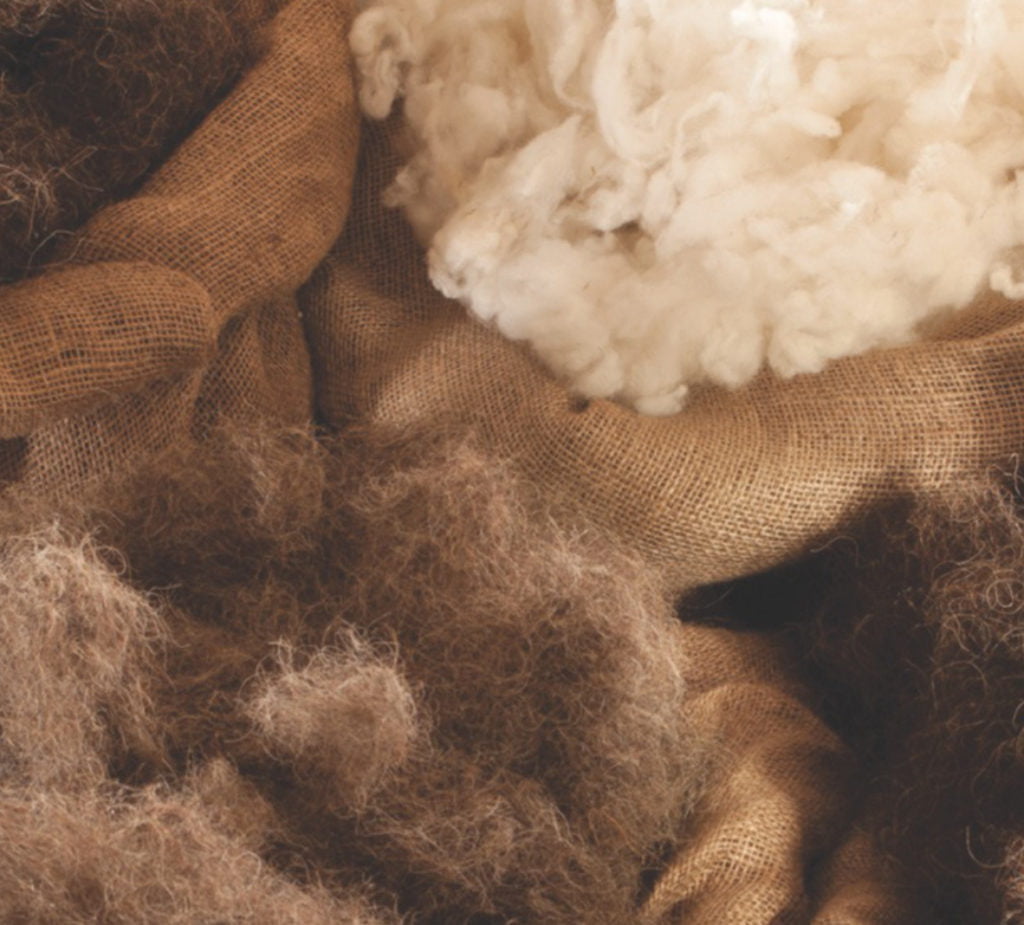
Non-Sprung Mattresses
Most foam mattresses are made from layers of different densities of foam. By varying their density and depth, it’s possible to achieve different levels of comfort and support. They are particularly suitable for use with slatted bases and adjustable beds.
There are three other main types of Non sprung Mattresses; Gel, Floatation & Futons
Latex foam mattress
Has a distinctive, resilient feel, is very durable and has anti-microbial properties that offer benefits to many allergy sufferers.
Its natural elasticity means it recovers its shape immediately when pressure is removed.
It also has very good point elasticity resulting in even distribution of pressure for independent support.
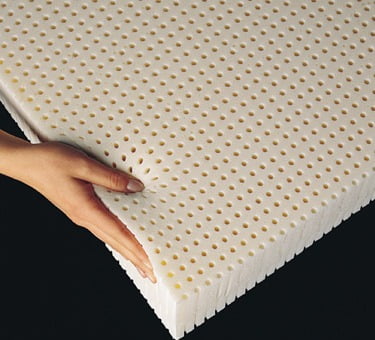
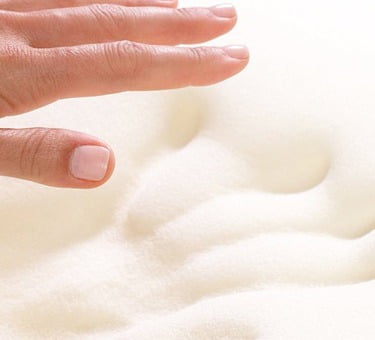
Has good pressure relieving properties.
Available in a variety of qualities and densities.
It is widely used and very versatile
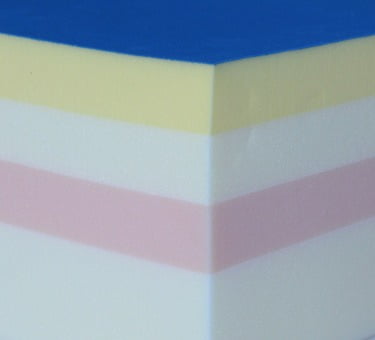
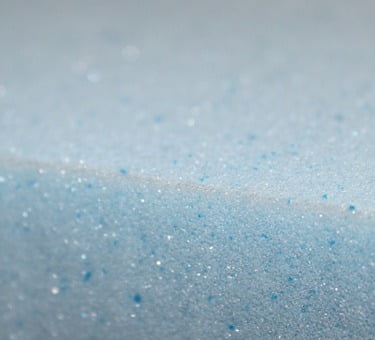
Can be combined with other materials eg foam.
Ground-breaking technology known for its cooling thermo regulating properties.
Delivers benefits such as breathability, pressure relief and body support.
Known for their pressure free support and also good for allergy sufferers.
Variable temperature heaters keep the bed warm and cosy.
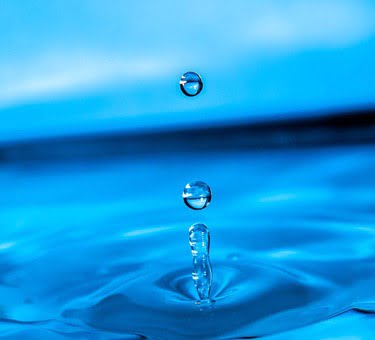
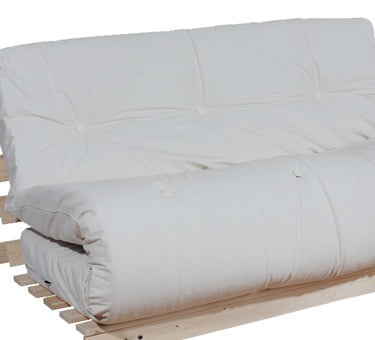
In Japan they are used on the floor with a mat underneath and rolled away during the day.
In the UK, they are more often sold as budget priced sofa beds with slatted convertible frames.
Watch our video guides
Pocket Springs Explained
Previous section
Buying a bed that’s right for you
Next section
Bed bases explained

